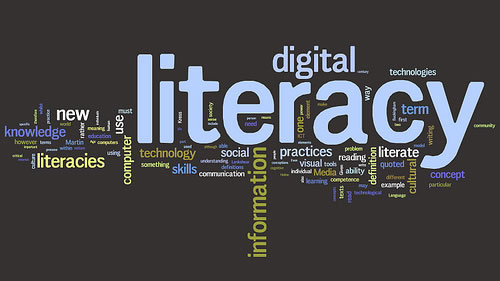« Digital Life: Go Digital! Gone Logical? »

As an inbound marketing professional, I was intrigued by a blog post I stumbled upon recently authored by UC Santa Barbara Professor Monica Bulger, PhD. The post is titled Is Digital Media the Ruin of Logical Thinking? She launches her essay with a recent quote from William Zinsser (one of my personal heroes): "The epidemic I'm most worried about isn't swine flu. It's the death of logical thinking. The cause, I assume, is that most people now get their information from random images on screen pop-ups, windows and side bars -- or from scraps of talk on a digital phone."
Monica Bulger then cites an excerpt from a 1/15/2010 New York Times article by Anand Giridharadas titled Language as a Blunt Tool for the Digital Age that reads like this:
"(we are becoming linguisitic utilitarians, treating language) as computers do, as a protocol: a code that machines use to communicate with other machines, a code not savored or loved, a code that exists to get the job done and works precisely because it is boring, standardized and pragmatic."
That's where Monica Bulger takes issue. She cites:
"As many scholars point out, the advent of computers, Internet, text messages, etc. have increased literate practice. ... Innovations such as email and texting require us to think and communicate textually."
EXAMPLE: Where an executive in the pre-email days would have dictated correspondence to a secretary, he/she is now actually thinking, typing and editing the message directly.
EXAMPLE: Where kids in the pre-text message days would simply pick up a phone and talk to a friend, they now (almost exclusively) send text messages via phone, Facebook, etc.
In simplest terms, the good in all this seems to me to be threefold.
1) People are forced to think about what they really want to communicate and then say it in as few words as possible. Telegrams, which forced truncated communications in the old days, were a luxury not readily available to the masses. By comparison, today's voicemail, email and texting technology is ubiquitous and FORCES all of us to be clear and concise. If you're not, you're simply ignored. Harsh, but true.
2) People can communicate with a much wider audience via social media. The enormity of the wider audience impacts all of us -- from friends reconnecting after decades to global business being conducted almost effortlessly. The power of it all is truly staggering.
3) Likewise, people can be influenced by a much wider audience through blogs and other social media tools. Rather than "dumbing us down," this new digital age has the power to be the new age of enlightenment. Take this post as an example. How else would I have found the elegant essay written by Monica Bulger if it was not for digital communication?
My simple interpretation of the bad in digital media/communication:
1) Artless communication. I guess I agree with Anand Giridharadas in acknowledging that we run the risk of words being used as pure function, not colorful conversation. I don't look forward to living in a world of talk stripped of persuasion and passion. Of course, the digital future doesn't HAVE to be this way.
2) Lack of personal connectedness in conversation. Social media is great. However, nonverbal cues are the nuance that add significantly to the art of conversation. You miss those nuances with digital conversation. That can make it difficult to truly connect with others.
3) Insular worldview. While the world is literally at all our fingertips these days, one must have a strong internal desire to pursue wider sources of influence. If not, your world can quickly and easily atrophe to the narrowest point of view. The most frightening aspect of this scenario is that you would have seemingly endless sources of information to fuel that one narrow point of view. We see the negative effects of this in U.S. politics already.
So, is digital communication the death of logical thinking? In my opinion, no.
Rather, it is the beginning of an evolution in logical thinking. We are learning new, faster, more concise and geographically broader ways to communicate (inbound marketing, content marketing and social media marketing are all good examples). Depending on your age, the learning curve can be significant. On the other side of all this change we will not only communicate differently, we will apply refined logic to processing that information. The approach won't be any "smarter" or "dumber"; it will just be different and appropriate to move our culture forward.


 Trish Fischer
Trish Fischer